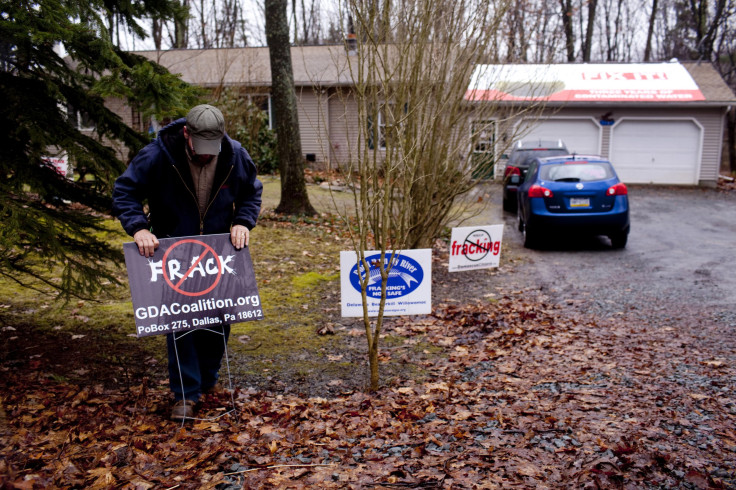US Shale Boom: People Who Live Close To Fracking Wells Are More Likely To Report Health Problems, New Study Finds

Pennsylvanians who live close to natural gas wells are twice as likely to report skin and respiratory problems as residents who live farther away, a new independent study says. The research aims to shed light on how the controversial practice of hydraulic fracturing, or fracking, may affect people’s health. While fracking has long prompted fears of contaminated groundwater and dirty air, little data has actually been gathered when it comes to residential areas.
The National Institutes of Health (NIH) study, published Wednesday, is based on a survey of 492 people in 180 randomly selected households in southern Pennsylvania. Each home used well water and was located in areas of active natural gas drilling. The Yale-led team drove around the region, asking about how often and how many times family members had sought medical attention for skin and respiratory complications like persistent rashes, nose bleeds, sore throats and unexplained hair loss. Researchers then compared that data with each home’s proximity to a gas well.
They found that “the number of reported health symptoms per person was higher among residents living less than 1 kilometer, compared with more than 2 kilometers, from the nearest gas well,” according to the study in Environmental Health Perspectives. “Proximity of natural gas wells may be associated with the prevalence of health symptoms.”
Nationwide, at least 15.3 million Americans have lived within a mile of an oil or gas well since 2000, an analysis by the Wall Street Journal found.
The NIH survey does not establish fracking as the cause of the discrepancy in health issues. But it does raise concerns and point to the need for further investigation, Meredith Stowe, an associate research scientist at the Yale School of Medicine, told the Washington Post. “This is just the start,” she said. “More research is needed down the road.”
Fracking proponents dismissed the research as baseless, the Post reported. Katie Brown, a spokeswoman for the pro-drilling group Energy in Depth, said it was “just a poll” that contradicts evidence from direct pollution measurements at fracking sites.
© Copyright IBTimes 2025. All rights reserved.





















